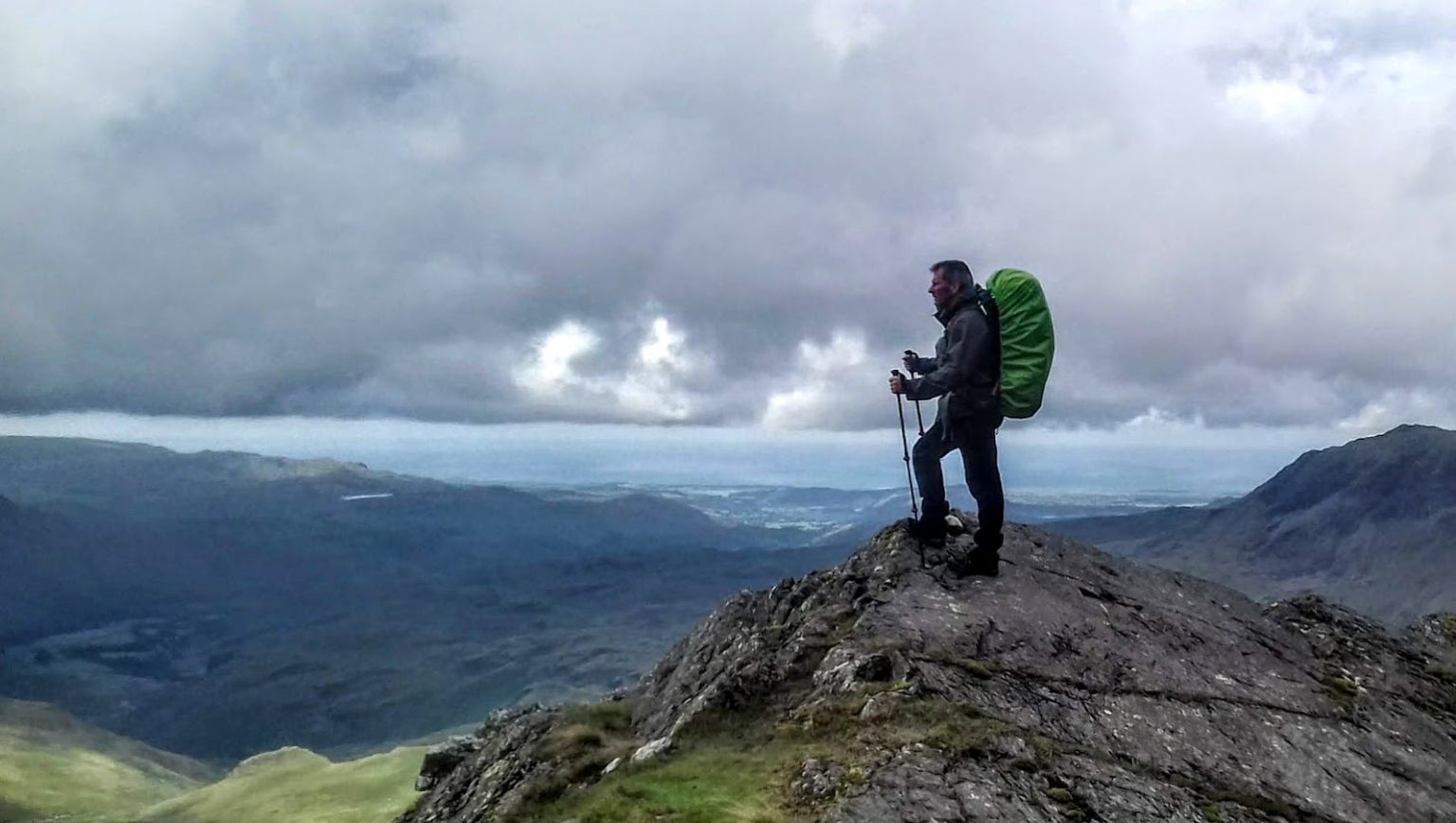Ultralight hiking gear isn’t cheap and you can spend thousands before reaching the holy grail of a sub-7kg ultralight base weight but there are a number of things that you can do to lower your carry weight without breaking the bank. Here are some of my top tips to save weight!
1. Ditch the stuff sacks
Cost: free | Weight Saving: 150g +
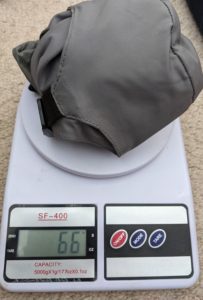
When you are out on the trail your kit is either all in your bag together and when you do take it out of your bag the first thing you do is take it out of the stuff sack. Individual stuff sacks might not seem like they with much but it adds up. Here are the stuff-sack weights for my big items:
- Sleeping bag – 66g | Sleeping Mat 57g | Tent outer 12g | Tent inner 22g | Pole Bag 12g | Peg Bag 2g
- Total: 171g
The simplest solution is to only being the stuff sacks you absolutely need (e.g. peg bag)
2. Use smart water bottles
Cost: 70p | Weight Saving : 50g +

I have a friend who often comes camping with me and he always bring along a fancy new water bottle each time. These cost money and are invariably heavier than the cheap Smart Water bottles that I use when hiking.
3. Use a spork instead of cutlery
Price: £2 – £10 | Saving 20g +
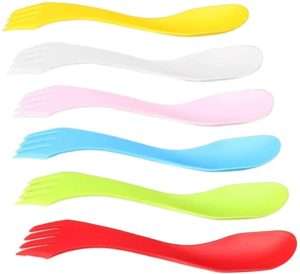
I remember when I bought my first steel hiking cutlery set. It all clipped together and did a great job but it was super heavy! One of the cheapest and easiest changes I made when I decided to move towards ultralight hiking was to order a cheap spork off eBay. Super light, super cheap and super easy to clean! The only downside is that I feel like a bit of a toddler when I use it.
4. Use a cheap plastic cup for coffee/tea
Cost Free to £15 | Weight Saving: 80g +
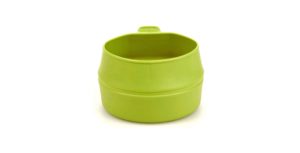
One of the first things to go when I switch to ultralight hiking was my enameled steel cup. Not only was it far too big and burned my lips when I drank from it but it was far too heavy. Instead I used the plastic cup from my thermos flask until I could find one that fit inside my cooking pot.
5. Swap out steel pegs for titanium
Cost £10 – 20 | Weight Saving: 100g +
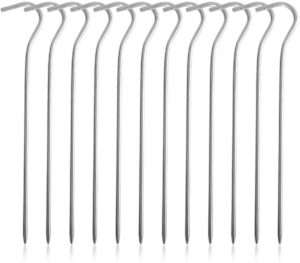
If you can’t yet afford a super light tent then you can still afford to swap out heavy steel pegs for cheap titanium pegs. I look at mine as an investment because they can be reused when you finally decide to sell a kidney to buy the latest Dyneema tent.
They also make excellent stocking filler presents for friends who love hiking!
6. Use a rubble sack or emergency bag as a pack liner
Cost Free to £2 | Weight Saving: 50g +
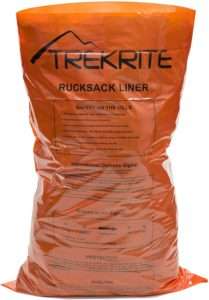
Outdoor gear brands will try and sell you roll top waterproof stuff sacks but the truth is that they are never truly waterproof and are always heavier than the one thing that does work – builder’s rubble sacks. These are super cheap (or free) and are 100% waterproof if you roll down the top.
7. Get rid of pull cords and unused straps.
Cost Free | Weight Saving: 50g +
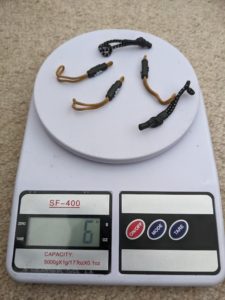
Pull cords on zippers and bags can seem quite helpful and individual toggles weight very little but when combined together the weight makes a difference, especially if you are attempting a longer thruhike.
- Remove string toggles completely or replace with thin Dyneema cord.
- Replace metal zip pulls with Dyneema
- Unclip/cut off unused straps and accessories from your rucksack/other equipment.
- Short adjustment straps(e.g. hip belts) if they are too long.
- Remove the pull cords on the bottom of trousers/jackets.
This might sound a bit extreme but trust me, it makes a difference!
8. Carry dehydrated food
Cost Same as hydrated food | Weight Saving: 150g+ per meal
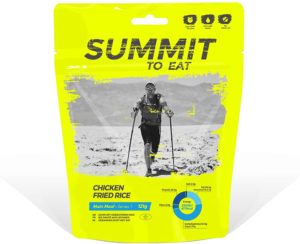
Gone are the days when dehydrated foods tasted like cardboard. Today there are plenty of options such as the excellent Summit to Eat cook in the bag meals. They often contain 3 times the calories per 100g as the wet stuff and often taste better!
Keep an eye out your local camping shop for special offers or buy them from Amazon.co.uk
9. Bring less gear.
Cost Free | Weight Saving: 1kg+
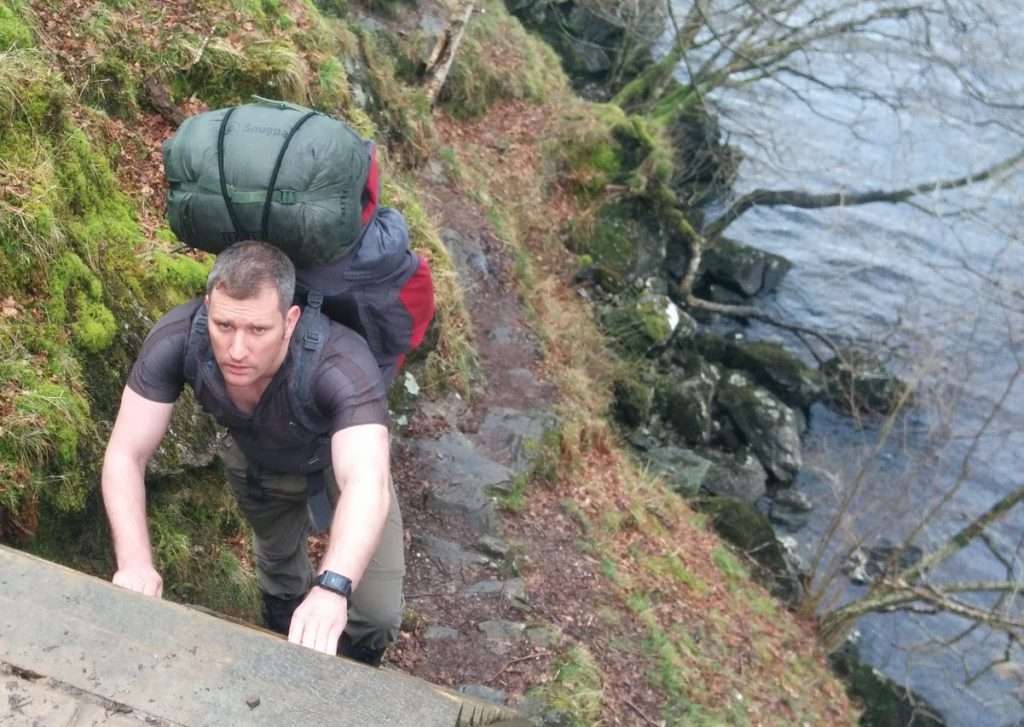
This tip is perhaps the easiest / hardest to do and it really depends on the specifics of the hike you are doing.
Finding the right balance between being prepared and only carrying items you really need is a skill that each needs to develop
At the end of every trip I look through my bag and write a list down of all the things that I didn’t use. While many of those items might be essential what-if items, others are likely to be either duplicates(e.g. 2 spare t-shirts) or ‘might come in handy’ items like an eye mask, bluetooth speaker, bush-craft knife,etc.
Key questions:
- What rating sleeping bag do you need?
- If you are camping in the middle of summer do you really need a separate torch or will your phone torch do?
- Do you need more than 2 t-shirts or can you make do?
- What electronics can you do without?
- Do you need a dedicated pillow or can you use a stuff sack filled with clothes instead?
10. lose some body weight
Cost Free | Weight Saving: 10kg+
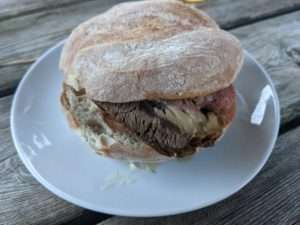
I put on a serious Covid-belly during lockdown but over the last 12 months I’ve worked hard to lose it(and some more). During my recent thruhike of the South Downs Way I was seriously glad I did! Losing weight makes it much easier to get up hills and reduces the strain on your feet and knees! Different diets work for different people but the Keto diet(combined with joining a crossfit cult ahem gym) worked for me!
Through a process of hard work and self discipline I managed to shave off 15kg from my Covid maximum weight. My legs and knees thanked me when I did my South Downs Way hike!
Summary
As you can see from the examples above you don’t need to spend hundreds of pounds in order to carry less weight, you can begin your journey into the ultralight world by taking little steps. You will save money and save your knees!
Got any more weight saving tips that I should add to the post? Drop me a message and I will add it to the list!
